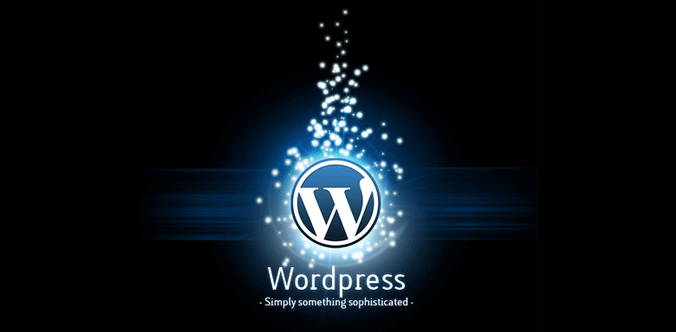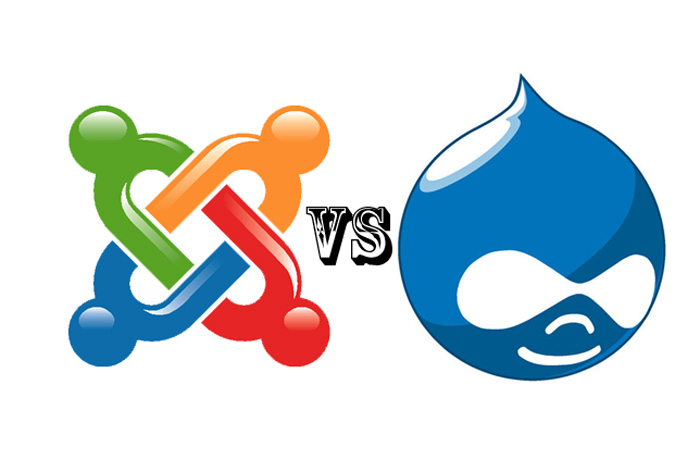Tags: CMS, WordPress
Why WordPress is Better than a Website

Even though WordPress did not get much recognition when it first came out several years ago, it quickly blossomed into a critical online platform that has given the humble website a run for its money. The following are some of the main reasons it’s gaining rapid popularity with bloggers and especially in eCommerce.
Affordable and Easy to Use
If this is your first time starting a business, online or off, then money must be tight. However, since today’s consumers are typically dependent on online reviews and eCommerce websites, it’s always a good idea to take your brand online. But rather than hiring a web designer to maintain and create a website, you can just maintain a WordPress account and place all the information for your products and services there.
For successful blogging your blogging platform is very user friendly, so you can add more pages on your own as well, without downloading additional software. This way you can save money and use it to make your business more profitable. Of course, once it takes off, it would be a good idea to hire someone experienced in WordPress to manage your account for you.
Time Management Capabilities
Even if you are a great writer, your blog will hold no water if it’s not updated on a regular basis. This won’t be a problem if you host it on WordPress though. All you have to do is add the content you want and just schedule the posts according to the time and dates you want them to be published.
How to get recognized on the Web using WordPress

Make your mark on the World Wide Web with WordPress
For those who are unaware, WordPress is a CMS or Content Management System that is a good alternative to a fully functioning website. As a website’s content grows, so do challenges on how to represent it to target readers. However with a content management system such as WordPress, you can manage as many pages as you need with the range of options it has to offer.
Attract search engines
Straight out of the box, the content management system comes ready to cater to search engines. Besides guiding them through pages, posts and categories, it can help them collect the information they need to propel your site to the top of search engine results.
Of course, that would not be possible without utilizing the in-built digital marketing tools the CMS comes with. This includes htaccess which can be used to create static URLs called pinging and permalinks to name a few. This is a configuration file that can be used to change a server’s settings for the directory it is based in. Permalinks are used by other bloggers who wish to connect with your blog and you can also use it to link a blog to an email. However, you should not change the URL of the posts if you want this to work. Since WordPress allows users to create permalinks with keywords search engines prefer, creating them will be worth your while. Read more about WordPress SSL
Why Joomla is Trusted by Millions of Websites

The reason Joomla CMS is trusted by literally millions of websites online, is because it is one of the very few that can be used to create, edit, publish and manage content. This is why it is considered a good alternative to employing a full time web design professional. The following are some of the main reasons it is so trusted:
Easy and fast editing – If you are not using a CMS and want to make some edits on the pages of your website, Joomla has your back. Using another CMS may not ensure data integrity the way Joomla can. It does this by locking the content so that no one is able to access or make changes to a document that is being edited apart from the approved person. Since the software uses powerful editors to make changes, the person editing a document will have no trouble making adjustments. In fact, a simple document will seem just like a Word file when it is being changed.
Customizable Core – Even though Joomla’s core is called hackable, that is not a cause for concern. It just means that it can be customized by anyone who has a modicum of knowledge regarding PHP. That’s because this open source software is very clean and quite well documented. It is ‘hackable’ so adjustments can be made to optimize it for a specific reason.
Up the Ante on your Blogs with WordPress Plug-ins

Even if you consider yourself a WordPress guru, you will only go so far unless you install appropriate WordPress plug-ins to fulfill all of your needs. The following are some that are preferred by the CMS community, but whatever you do, don’t try and install all of them. Pick those that seem relevant if you don’t want your website to slow down.
W3 Total Cache
WordPress can be great if you have a lot of content to share, but it can get slow fast if it is not managed with plug-ins or is hit with loads of traffic every day. For instance, once your website hits 500 page views, you will need to start caching them. That way they won’t need to be re-generated each time. You can do that easily with W3 Total Cache. The plug-in is affectionately known as The Swiss Army knife of performance plug-ins since it can manage almost everything from delivery to miniaturization.
CloudFlare
If you are looking for a solution that can fix loading speeds, then you should download CloudFlare. This is a free to use plug-in that can act as a replacement for your current DNS, work as a firewall against malicious requests and can even cache content. Since you will need to modify your domain for it, you may face a little difficulty during installation. However, it will be smooth sailing once you do.
Why You Should Use Drupal for a CMS Website

From personal website to community portals, Drupal has been helping site owners make an impact online ever since it was launched. Offering more than 2,000 themes and design options as well as 20,000 modules, it’s loved by both owners and developers alike. In fact, it serves as the back-end infrastructure for several notable custom websites on the World Wide Web today.
Besides the above mentioned, the following are some of the main reasons why this CMS platform is making waves in its industry:
Highly Customizable – With its vast number of themes, designs, layouts and ease of operation, Drupal designers and web developers have a smorgasbord of choices when it comes to creating custom websites. This includes addressing complex client requirements.
Allows Rapid Deployment – Regardless of complexity, this CMS allows business owners and companies to launch functionalities and core features easily and quickly. Using Drupal, developers can also make changes to their creations even after deployment, which is critical post feedback and when making tweaks according to business requirements.
Pros and Cons of Using Drupal

Drupal has come a long way from its humble beginnings as a simple, open source CMS platform. It has effectively evolved into a strong web development program loved by programmers and developers alike. It’s widely used in 200 countries across the globe, is available in more than 180 languages and is used by the likes of Sony Music, Ubuntu and even the White House!
However, just like any tech, Drupal also has its fair share of downsides along with benefits.
The Pros…
- Customizable – Drupal has a number of design features and development tools that programmers absolutely love. Besides literally 1000s of readymade and customizable themes and templates, it has the ability of streamlining web development. This has proven quite handy for developers, especially those who have to maintain an online presence for ever-changing brands.
- Feature filled – The CMS platform comes complete with a number of features that are designed specifically to cater to serious developers. This includes a comprehensive menu, system admin, RSS feeds to name a few and which can be used to manage large websites as well as blogs. This includes the ability to create new user accounts quickly, which can be tweaked for custom permissions for users.
Joomla vs. Drupal – Which is Better?

Joomla and Drupal may be considered some of the best open source content management software out there, but the one you choose should be based on your specific requirements. Even though they are similar in several aspects, they differ in the type of content they can effectively manage. Of course, that is not to say that either is better than the other, but it’s better to look at what you need first before downloading either one. The following guide can help you narrow down your choice:
Drupal is Best for…
Even though large brands such as Yahoo!, McDonalds and Best Buy use Drupal, they use other software for their main websites. For instance in Yahoo it is used to manage style guides, while it is used to manage Best Buy’s online magazine. It is also preferred in the education sector by universities such as Duke, Stanford and Rutger to name a few who use it for their mail site. In fact, MIT also uses it to manage its media lab since it is very easy to use. The CMS may not be suitable for everybody, but it is still popular with those whose skills are not technically strong.
How to Choose between CMS platforms

Choosing a content management system (CMS) that can fulfill all of your requirements can be a challenging endeavor. Without clear cut requirements, you might be tempted to download the first one that has the fanciest features! The following analysis will help you narrow down your choices to pick an appropriate one:
Check Functionality
Now when most people are looking for a CMS, they look for one that can help them edit, organize, create and manage content on their websites. This is an incorrect assumption since not all content management systems are capable of all of those features. For instance, not every blogging platform allows users to manage pages in a hierarchy. Some even go so far as to post blogs at random or according to date. This may be ideal in certain circumstances, but this limitation can be quite frustrating if you wish to say, post a large DIY tutorial in one go.
Your job is to first ascertain what you need from your CMS along with the basic features you need to make changes if necessary. Be wary of those that do not allow you to accomplish core tasks such as structuring and organizing pages. There are literally thousands of such open source software out there and you will need to test a couple out before sticking to one.
5 Benefits of Using Open Source Software

As more and more businesses and government entities opt for open source software such as Linux, it’s clear that the platforms have more to offer than meets the eye. Perhaps its definition can best be explained if we take a look at the benefits it offers.
Flexibility
As the name implies, open source software is open to all, meaning that its code can be accessed by anyone who wants to make changes in it. In other words, no single company owns it and any business can create their own software without facing copyright issues. It is easy to manage as well and can be outsourced to multiple vendors thus eliminating entry and exit barriers. Plus, you can always choose another vendor if the one you chose does not pan out.
Quick Deployment
Consumers can launch new software solutions in days rather than the years it used to take before. Software that is created using it can be tested prior to deployment and is quite beneficial when it comes to collaborations between two entities and experimentation. Additionally, developers can anticipate the needs of existing and potential users with the results they receive from the number of tests that they will be able to do.